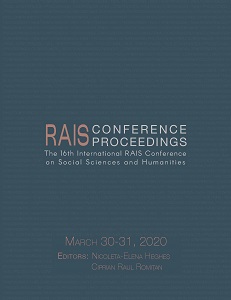Productivity, Sustainability, and Economic Growth in Metropolises: Estimates of Long-Time Commuting Effects in Developing Countries
Productivity, Sustainability, and Economic Growth in Metropolises: Estimates of Long-Time Commuting Effects in Developing Countries
Author(s): Aurelio Hess, Sampson Banflo Narteh-Yoe
Subject(s): Business Economy / Management, Developing nations, Rural and urban sociology, Economic development
Published by: Scientia Moralitas Research Institute
Keywords: commuting; estimates; metropolis; productivity; sustainability;
Summary/Abstract: In this study, the long-time commuting patterns of workers in six of the biggest metropolises of the world were observed – New Delhi, Mexico City, São Paulo, Manilla, Nairobi, and Accra – located in very different geographic regions, and all of them coming from the developing world. The main question to be answered was whether there is scope for labor policy changes towards productivity improvements in this area. The findings brought fundamental insights to the debate about big cities' problems to avoid becoming more crowded, congested, and polluted, reducing sustainability, productivity, and economic growth. Simple random samples of workers in the Metropolitan Areas of each city were surveyed electronically, by ‘Google-Forms e-survey’ during the second half of 2019. The sample proportions were the estimators of the population proportions. Considering specific error margins – below 5 percentage points – for each city, and with a 95 percent point of confidence level, the authors used proportion (p) sample distributions to draw inferences about the population of workers. It was found that long-time commuters are between 12 and 26 percent of the workers who participated in the survey. More than 65 percent of workers in all the cities observed were interested in reducing commuting time. More than half of the workers agreed that reducing commuting time could improve labor productivity, and approximately the same share is aware of the negative effects on quality of life and health. Labor policy changes in these six metropolises have the potential of affecting more than 6.5 million workers.
Book: Proceedings of the 16th International RAIS Conference on Social Sciences and Humanities
- Page Range: 28-34
- Page Count: 7
- Publication Year: 2020
- Language: English
- Content File-PDF

